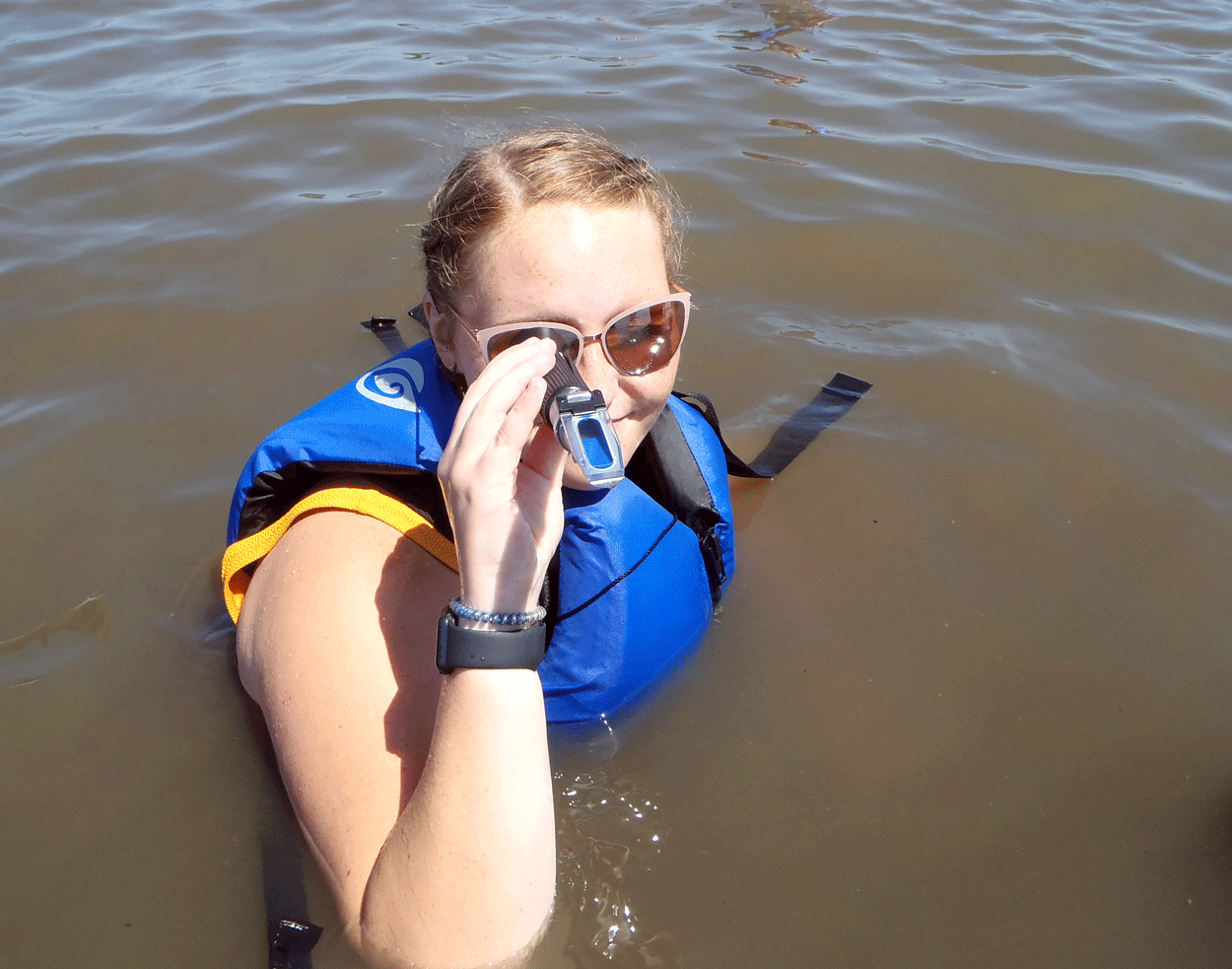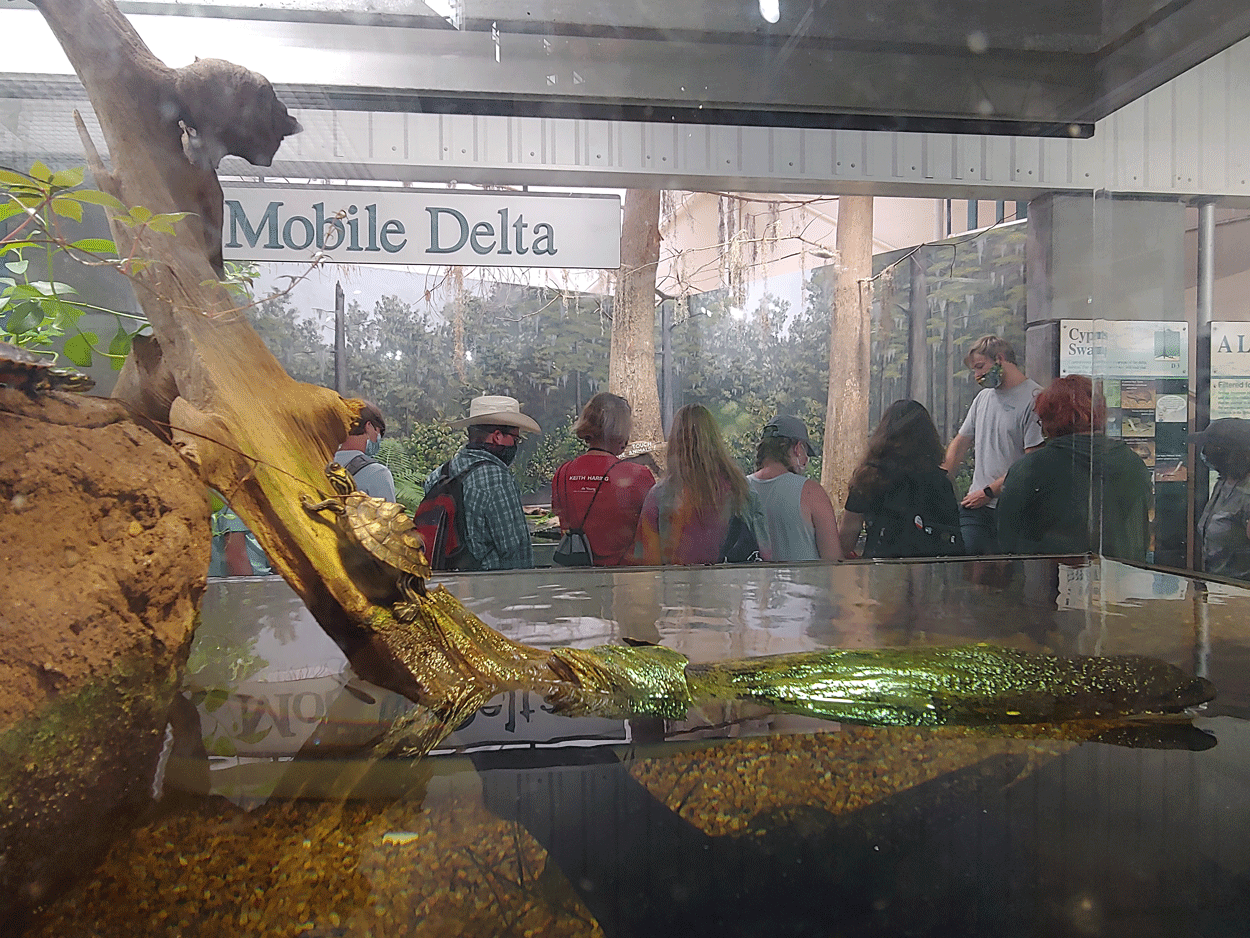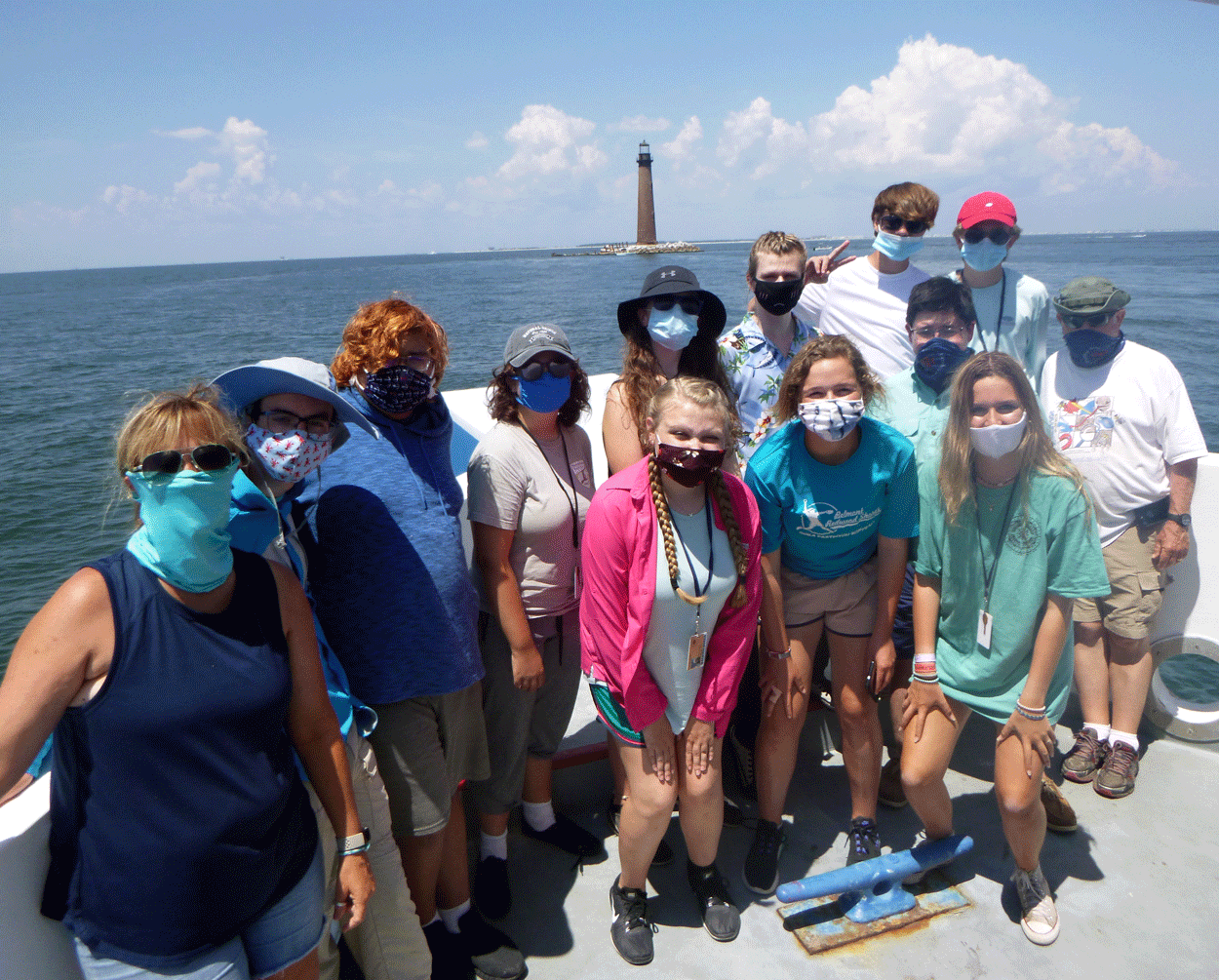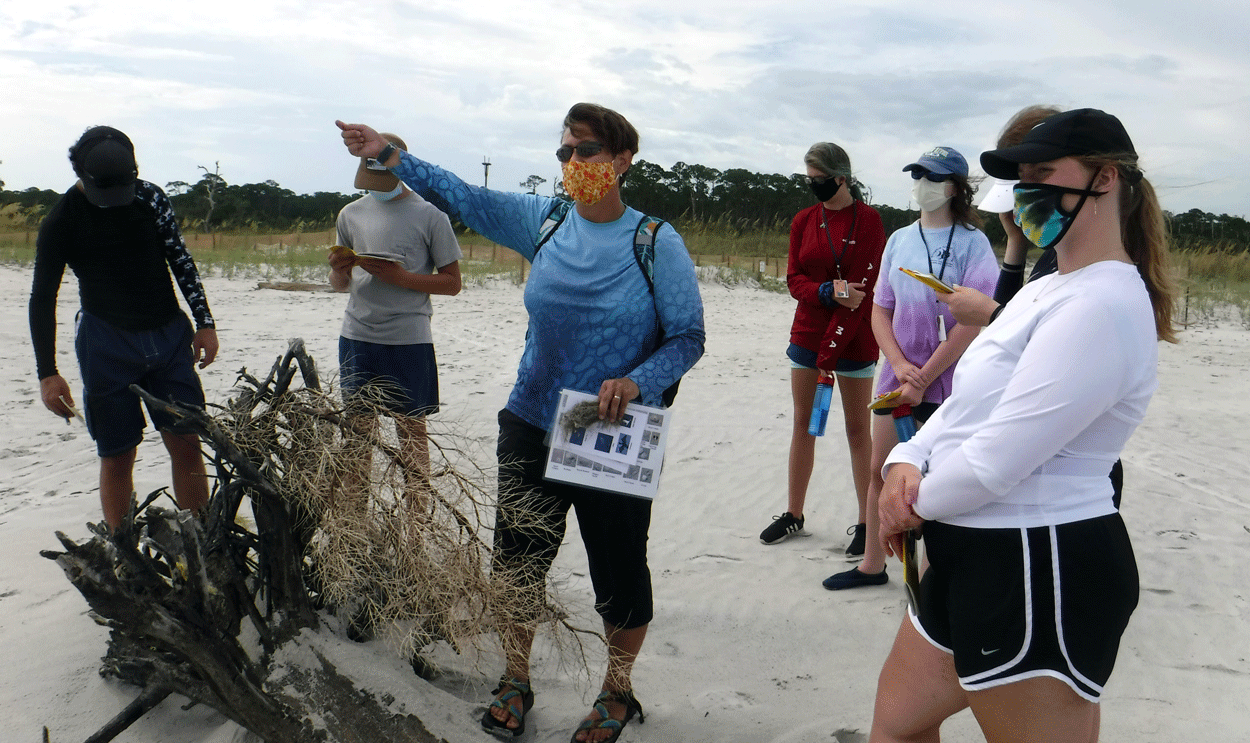(August 31, 2020) --

Students sink deep into the world of marine science during Discovery Hall Programs’ four-week residential high school course. Some students use the course to adjust their college and career path. Others just have an interest in the marine world. Whatever the reason, the experience leaves a lasting impression.
For some students, donation and grant-supported scholarships make the experience possible. This summer seven students benefited from scholarships.
“I probably wasn’t going to be able to make it if I didn’t receive the scholarship,” Tuscaloosa senior Fulton Dees said.
Dees, a rising senior, works as a lifeguard and planned to save what he earned to attend the Marine Science High School Course. But his plans were canceled when the pool he worked at shut down because of COVID.
Dees received the Local Business Community Scholarship funded during Tiki Week in Mobile last fall.
“This summer course has meant a lot to me,” Dees shared. “It really opened my eyes, because before this I’ve been undecided about a college major and I feel like I’ve made a decision after this.”
“The scholarship has given me the opportunity to see if I wanted to pursue a career in marine science,” Diamond Contee of Maryland shared. “I want to thank those that funded the scholarship because I know now I want to do this for the rest of my life.”
Contee benefited from the newly established Mike deGruy Scholarship funded by the Dauphin Island Sea Lab Foundation and the Mobile Bay National Estuary Program.

As the class is also open to recent high school graduates, Diamond will begin working towards a career in marine science at Coastal Carolina University this fall. She’s interested in working with marine mammals after college.
The Marine Science High School Course isn’t just about learning marine science, it’s more about doing it. Students spend a lot of time in the field seeing organisms firsthand and learning how to use common equipment. They also start on their skills as a practicing scientist as the class includes time for them to conduct a research project.
Each student works with one of DHP’s marine educators or University Programs faculty to create their own research project, starting with something they are curious about. They develop a hypothesis and determine the methods needed. They collect the data and learn how to handle challenges in the field and in the lab. It’s one of the many ways the course takes students beyond the textbook.
“The best experience is when you’re sitting in class and you’re taking notes and two seconds later you go from taking notes to being in the field,” Vanessa Neve explained enthusiastically. “You are literally looking at what you took notes on and what you just learned about and you’re watching ecosystems work together and you really get to experience living in their shoes and looking at those organisms and seeing how plants hold dunes together and work to keep ecosystems working and alive.”
The Women in Technology scholarship gave Neve the chance to go from the classroom to the field. She’s a rising senior at Dothan High School.

“Marine science has been a passion of mine since I was about seven years old,” Neve added. “I’m just really, really grateful I was able to come here and do this and learn so much within a very short amount of time. I’m very excited to be able to use all the skills that I have learned in my future.”
Maryland’s Anthony MacCumbee is also looking to use what he learned in the course in his future. The Mississippi-Alabama Sea Grant Consortium Scholarship solidified Anthony MacCumbee’s plan to attend the high school course.
“This course opened my eyes to a lot of marine environments and the different organisms in those environments,” MacCumbee shared. “What I want to do for my research later in life is to look at habitats and see what organisms live there, and how we can increase the biodiversity in those habitats.”
Dr. Jeff Krause, DISL Senior Marine Scientist and Associate Professor in the Department of Marine Sciences at South Alabama, sees the benefit of the course and how scholarship opportunities can benefit a student’s interest in marine science. He started the Quackenbush Research Scholarship for the course four years ago through his Chemical Oceanography Grant. The scholarship is named after his 9th and 10th-grade biology teacher Mr. Russell Quackenbush.
“One of the goals of this program was to try to duplicate the impact that Mr. Quackenbush had in my life by giving me an opportunity to see just how wonderful biology is and introduce me to oceanography,” Krause said.

Katie Cowart, a senior from Tennessee, is the fourth recipient of the Quackenbush Research Scholarship. Cowart enjoyed the chance to be at the ocean’s edge and learn from Krause and his team in the lab. Her research project focused on phytoplankton.
“It was a great experience. I got to do things I can’t normally do,” Cowart said. “I enjoyed the lab experience and working with something I enjoy studying. I plan on continuing the research this fall and investigating the different factors that affect phytoplankton.”
Longtime DHP Marine Educator Jenny Cook believed in the need to expand students’ appreciation and awareness of our ocean planet and enjoyed watching the students grow during the high school course. After she passed away, a scholarship fund was established in her honor.
Wyatt Stanley, a homeschool student, and Emma Graves, a Thompson High School senior, were recipients of the Jenny Cook Memorial Scholarships this year, and are looking to the future and careers focused around the ocean.
“The scholarship means the world to me,” Stanley said. “I want to be a marine veterinarian so being a part of this course allowed me to get up close and personal learning about all of the animals.”
Graves isn’t a stranger to DISL. This is her fourth year participating in summer programs at DHP and was one of the most fulfilling experiences.
“It just means so much to me when I got the scholarship. It made me think about how my future will be impacted by this community of people,” Graves said. “They believe in me and believe that I can do what I want to do in the marine science field.”
For some like Graves, the path ahead includes a desire to return to the Dauphin Island Sea Lab as a University Programs student.